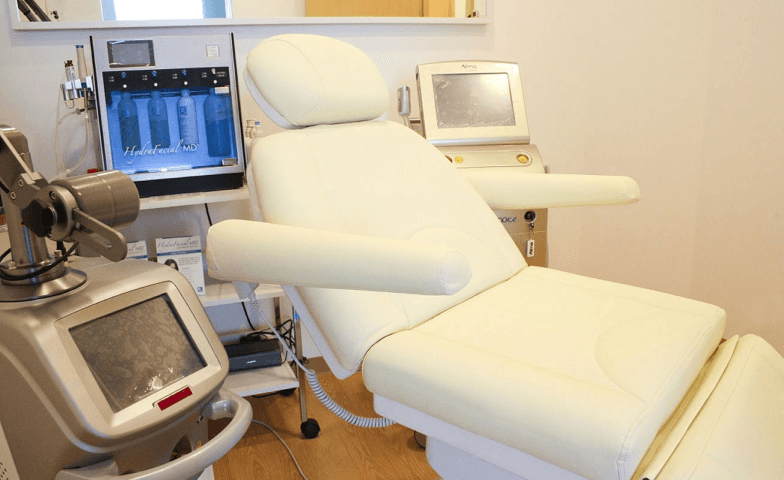Psoriasis is a chronic autoimmune disease that affects the skin, causing it to become red, scaly, and inflamed. In Singapore, psoriasis is a common skin condition that affects up to 1% of the population.
Understanding the causes, triggers, and prevention methods of psoriasis can help you manage it effectively. By identifying the factors that contribute to psoriasis flare-ups, you can take steps to reduce your symptoms and improve your quality of life.
Immune System Dysfunction In Psoriasis
Immune system dysfunction is a key factor in the development and progression of psoriasis. In psoriasis, the immune system becomes overactive and begins to attack healthy skin cells, leading to the development of the characteristic plaques and other symptoms of the condition.
Types of immune system dysfunction associated with psoriasis include:
- T-cell activation: T-cells are a type of immune cell that play a critical role in protecting the body from infection and disease. In psoriasis, T-cells become overactive and attack healthy skin cells, leading to inflammation and the development of psoriatic plaques.
- Cytokine dysregulation: Cytokines are proteins that help regulate the immune response. In psoriasis, certain cytokines become overproduced, leading to chronic inflammation and the development of psoriatic plaques.
- Autoimmune dysfunction: In some cases, psoriasis may be related to an autoimmune dysfunction in which the immune system mistakenly attacks healthy tissues in the body, including the skin.
While the exact cause of immune system dysfunction in psoriasis is not fully understood, researchers believe that a combination of genetic and environmental factors may play a role.
Environmental Factors & Psoriasis
Environmental factors, such as exposure to certain triggers, can play a role in the development and exacerbation of psoriasis. While the exact triggers may vary from person to person, some common environmental factors that have been associated with psoriasis include:
- Cold weather: Cold and dry weather can lead to skin dryness and flaking, which may trigger symptoms.
- Stress: High levels of stress can lead to immune system dysfunction and trigger psoriasis flares.
- Infections: Certain infections, such as strep throat, may trigger flares in some people.
- Medications: Certain medications, such as lithium, antimalarial drugs, and beta blockers, may trigger flares in some people.
- Trauma to the skin: Injuries, such as cuts or sunburns, may trigger symptoms in some people.
Work with a dermatologist who specializes in psoriasis to identify potential triggers and develop strategies to manage their symptoms.
Lifestyle Factors & Psoriasis
While the exact lifestyle factors may vary from person to person, some factors that may cause psoriasis include:
- Diet: A diet high in sugar, processed foods, and saturated fats may increase the risk of psoriasis and exacerbate symptoms.
- Smoking: Smoking has been shown to increase the risk of psoriasis and exacerbate symptoms.
Risk Factors for Developing Psoriasis
Psoriasis is a complex autoimmune disease that can affect anyone, but there are certain risk factors that may increase an individual’s likelihood of developing the condition.
These risk factors include:
- Family History: Genetics and family history are a major risk factor for psoriasis, as the condition tends to run in families.
- Age: Psoriasis is more commonly diagnosed in adults between the ages of 15 and 35.
- Gender: Psoriasis affects both men and women, but some studies have suggested that men may be at slightly higher risk than women.
- Race/ethnicity: Psoriasis is more common in Caucasians than other racial or ethnic groups.
Are Your Symptoms Affecting Your Quality Of Life?
Prevention Strategies For Psoriasis
Psoriasis can be managed with a variety of prevention and treatment strategies. While there is no known cure for psoriasis, you may consult a dermatologist with a special interest in psoriasis to identify the most appropriate prevention and treatment strategies based on your specific needs and goals.
Lifestyle Changes
You can reduce the frequency and severity of symptoms by making healthy lifestyle choices, such as maintaining a healthy weight, reducing stress, and avoiding triggers such as smoking and alcohol consumption.
Topical Treatments
Topical medications, such as corticosteroids and vitamin D analogues, can be applied directly to the affected skin to reduce inflammation and other symptoms.
Medication
For more severe cases of psoriasis, systemic medications such as oral or injectable drugs may be recommended. These medications work by targeting the underlying immune system dysfunction that leads to psoriasis symptoms.
Light Therapy
Phototherapy, or light therapy, involves exposing the skin to ultraviolet light under medical supervision. This treatment can help reduce inflammation and other psoriasis symptoms, and is often used in combination with other treatments.
Biologic Treatment
Biologic drugs are a type of systemic medication that target specific components of the immune system that contribute to psoriasis. These medications are typically administered via injection or infusion, and are often reserved for those with severe or difficult-to-treat psoriasis.
Conclusion
Psoriasis is caused by a combination of genetic and environmental factors. Certain risk factors, such as family history, obesity, and smoking, may increase the risk of developing psoriasis.
While there is no known cure for psoriasis, there are various prevention and treatment strategies available to manage the symptoms and improve the quality of life for those with this condition.
By working closely with a dermatologist and exploring the various treatment options available, you can take an active role in managing your condition and improving your overall health and well-being.







